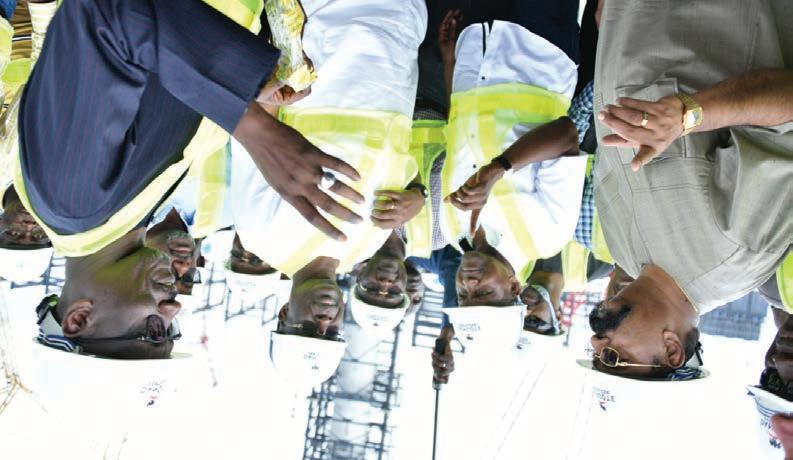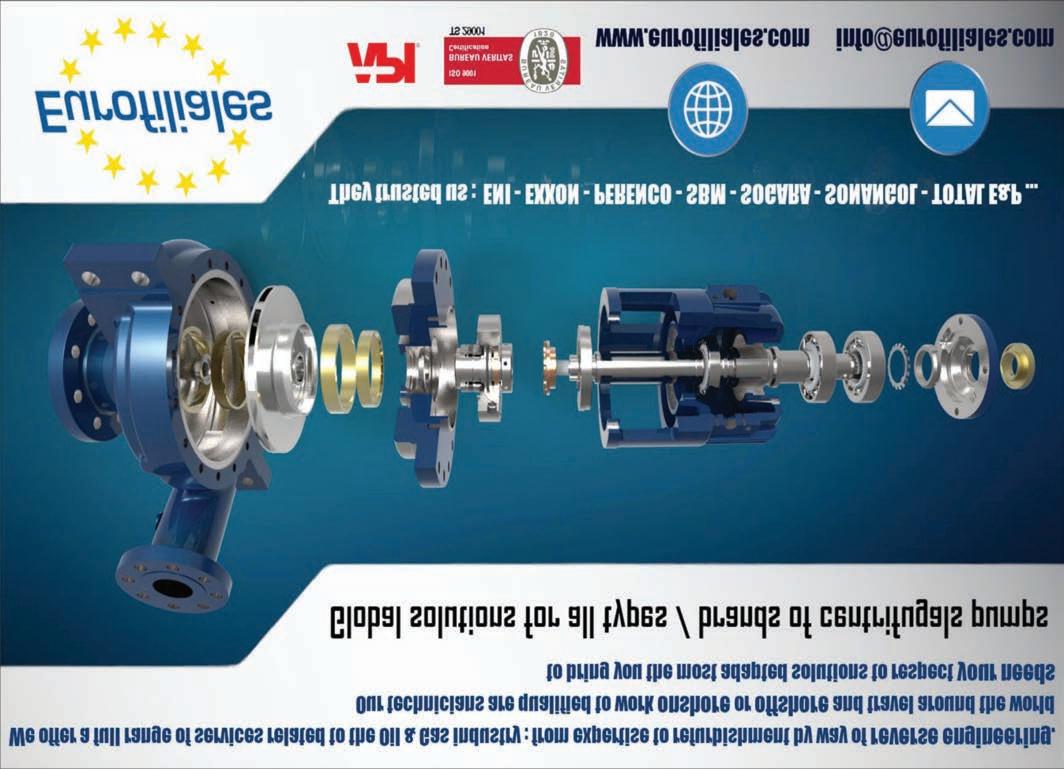
3 minute read
Nigeria
With a new petroleum minister settling into his position, major projects, such as the Dangote refinery, going ahead and a spirit of regional cooperation bringing Nigeria closer to its neighbours, 2020 promises to be an exciting year. Georgia Lewis reports.
WHILE THE ATTEMPTED passage of Nigeria’s Petroleum Industry Bill reaches its second decade, the ongoing parliamentary wranglings over this legislation have not stopped industry leaders from making progress on major oil and gas projects and regional cooperation.
The Dangote refinery project The most obvious major project to make progress is the Dangote refinery, which is now slated for completion by the end of 2020. Once operational, the Lekki Free Zone plant is expected to have the capacity to meet more than Nigeria’s entire fuel consumption needs, at 650,000 bpd. This has the potential to transform the country’s economy.
At present, Nigeria has to import all its refined product needs, sending its own hydrocarbons elsewhere for processing. According to Nigeria’s The Guardian newspaper, the Warri refinery in Port Harcourt ceased production in March last year, with Eni and Maire Tecnimont evaluating the site to determine what rehabilitation work needs to be done to ensure the Warri plant is operational again.
There is brighter news from the Waltersmith Modular Refinery project. In December
The Dangote group is working closely with Nigerian government officials on the major refinery project.
2019, Nigeria’s Minister of State for Petroleum Resources, Chief Timipre Sylva, and Simbi Wabote
At present, Nigeria imports all its refined products, but projects such as the Dangote and Waltersmith refineries could be game-changers”
paid an inspection visit to the site. Phase one has been completed and it is expected that ground will be broken on phase two in May this year. The plan is for this refinery to delivery 25,000 bpd of refined crude and condensate for gasoline, diesel, LPG, kerosene and aviation fuel. Time will tell if the opening of the Dangote and Waltersmith refineries will be the catalysts to get other Nigerian downstream projects launched or stalled projects moving again.
As well as the refinery, Dangote is constructing a fertiliser factory on the same site, to further boost the downstream value chain for Nigeria.
Working with neighbours Regional cooperation has been a buzzword at African oil and gas industry events in recent years. African countries are increasingly working together in geographically close blocs, such as ECOWAS, and the African Union growing closer as a large economic entity. In this context, it comes as no surprise that Nigeria has been working closely with nearby neighbours.
Particularly, Nigeria has strengthened its ties with Equatorial Guinea, which is emerging as an important new player in the West African hydrocarbons industry, especially with gas development.
Equatorial Guinea’s Gas Megahub, located north of Bioko Island, has the potential to become an important crossborder link with gas projects in countries such as Nigeria and Cameroon. Gabriel Mbaga Obiang Lima, Minister of Mines
Equatorial Guinea is an example of a country that is working closely with Nigeria in terms of oil and gas regional development”
and Hydrocarbons of Equatorial Guinea, has met with high-level Nigerian investors, bankers and financiers to discuss the opportunities. This is part of Equatorial Guinea’s Year of Investment initiative for 2020.
Delegates from Nigeria at the January meeting included executives from the Africa Finance Corporation, Polaris Bank, Sterling Bank, First Bank, UBA and Zenith Bank, and Simbi Wabote, Executive Secretary of the Nigerian Content Development and Monitoring Board. While Nigeria’s refining sector is still in need of investment and development, the Dangote project aside, the Gas Megahub could provide a solution, at least in the short- to medium-term, bring stranded, associated and flared Nigerian
Nigeria and Equatorial Guinea work together on oil and gas development.

gas to Equatorial Guinea for processing and commercialisation opportunities. Waltersmith, which is building a Nigerian refinery, has acquired oil and gas block EG-23, located in Equatorial Guinea’s Niger Delta basin, which reflects

plans to develop oil and gas in Nigeria at a local and regional level. Waltersmith chairman Abdulrazaq Isa said he appreciated the confidence shown in the company by the government of Equatorial Guinea in granting the license.











